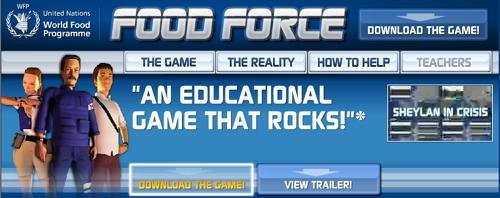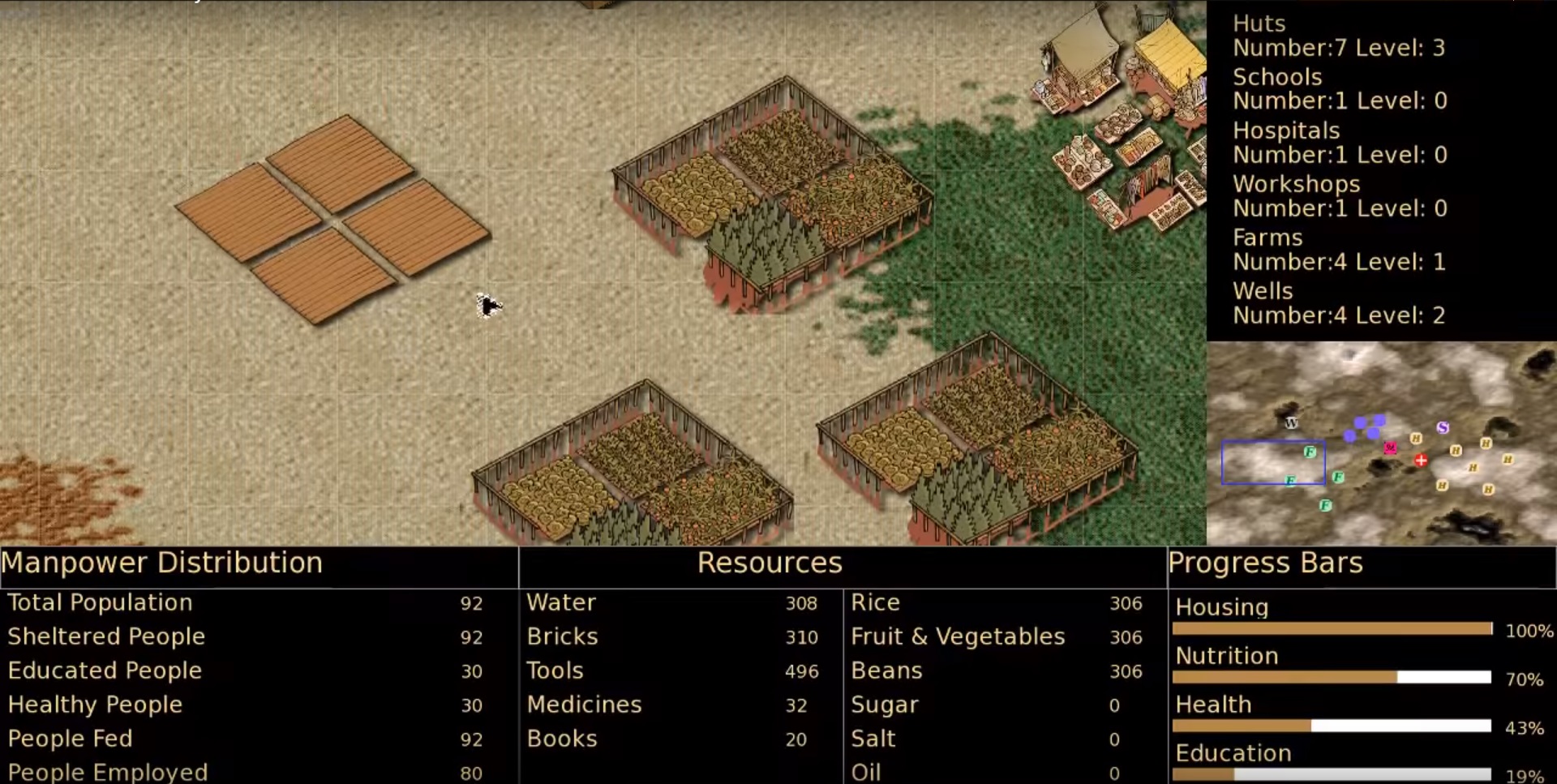Food Force 2

This is one of those cases, where quite frankly, I feel bad even naming this game, because its so bad, and I suspect the reasons its bad are not entirely the fault of its developer. This game was apparently commissioned by the United Nations as a learning tool for understanding the challenges within nutrition. The idea was to use a Real-time strategy, isometric orientation to allow the player to experience the challenges behind generating enough food for a population with only minimal technology. Honestly, I’ve been trying to write this blog post for a few weeks, and keep failing because I can’t really come up with the right words to describe the experience fully, which is a mixture of sadness, frustration, and sympathy for whichever poor soul developed this. I’m guessing that this was supposed to be a form of educational RTS Age of Empires style game, and honestly, I can see a good way of just simplifying the AoE style gameplay into a pure resource-collection style game while cutting out the combat for a serious game.

None of that happened.
I’ll leave aside the usual “serious games” terribleness in UI/UX design, but rest assured they are there, starting with an incredibly annoying music track that will not leave you alone, to the fact that the game does not pause when you are in menus.
The challenges of nutrition…are nonexistent
This is one of those key cases when the gameplay of a “serious game” totally, completely, and utterly fails to match its intended message. In about 60 seconds, I had developed like 15 farms pumping out more food than I knew what to deal with, made a dozen wells, employed most of my population, and housed them in buildings that I rapidly teched up to something like Tech Level 4.
What we have here is a game designed to teach people about difficulty, the *one* time a game developer can legitimately claim that being a little hard on the difficulty curve is a good thing, and the game is so easy that I’m immediately at a loss. Moreover, the game seems somewhat unfocused on the nutrition problem, trying to mix in education (which consumes books on a daily basis as I assume students learn by eating books), employment, and other nonsense into there.

To add onto it, someone apparently opted for the most ridiculous visual novel/story section that…adds *nothing* to the game. There really is almost nothing to say about this – the story involves a wedding and…I have no idea why? What does this have to do with the message on nutrition? Did I mess a rather massive memo? Its so wrong it defies explanation or even criticism.
Bugs, Bugs, BUGS
To top off a fairly weak gameplay, the game is…well, its flat out broken. The game tries to run “challenges” where you’re supposed to keep your “education” levels or other levels above a certain percentage…except that the game will periodically drop your education level to 0%, have you fail the mission, and tell you to restart. I…did not engage in the effort required to replay the game long enough for this bug to *not* kick in, so…that’s pretty much all I have to say. A pretty good example of a total failure as a game, that…uh…I honestly couldn’t even bring myself to play further.
What’s to Learn?
OK, so, if this game’s a total wash, what’s to learn from this? Well, primarily, that while a certain degree of divergence between your intended topic’s gritty realities and the necessities of gameplay is expected, they should never directly oppose each other in terms of lessons. In addition, you can only keep a small number of “serious topics” in your game – trying to include unnecessary tangent ideas, like education and employment, just distracted the player from the topic of food. And while its true that those topics indeed are worthy of attention – that attention would probably belong in another serious game that focuses on those issues. Lastly, and probably the easiest takeaway is that please, for the love of god, treat serious games as at least worthy of some basic quality testing – if there are game-breaking bugs in your game, it probably needs a good round of quality testing. This last one is probably a good lesson for funders – a pay structure that works as if the project is complete on delivery will probably fail to assure quality later on – a good way to structure funding would be to include a year or two of support for the project that will allow most major bugs and glitches to be worked out.